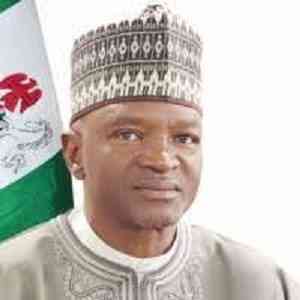
The Minister of Environment, Dr. Mohammad Abubakar, has lauded the media for what he called factual and unbiased reportage of the progress being made in Ogoniland clean-up exercise.
He gave this commendation in Abuja during a press briefing intended to update the media on three important recent developments within the environment sector which include the submission of Nigeria’s Revised Nationally Determined Contributions of the Paris Agreement on Climate Change; Nigeria’s assumption of the presidency of Pan African Great Green Wall and the hosting of the Council of Presidents of the GGW Countries; and the 10th year anniversary of the submission of UNEP Report to Nigeria.
The minister praised the media for the critical role they have in reporting the progress made by government in the implementation of the UNEP report in the polluted Ogoniland.
He urged the media to continue their important contribution and join government in the fight against pipeline vandalization, illegal refining resulting to oil spills and re-pollution as well as support the efforts of government in the fight against pollution, desertification, erosion control and the negative effects of climate change.
Giving stewardship report of achievements in the sector, he recounted that the United Nations Environment Program (UNEP) submitted its reports of environmental assessment of Ogoniland on August 4, 2011 (10 years ago) to the Federal Government, saying government on July 2012, as a follow up action, established Hydrocarbon Pollution Restoration Project (HYPREP) under the Ministry of Petroleum to implement the UNEP Report, noting sadly, the project could not take off properly.
According to him, On June 2016, President Muhammadu Buhari, represented by Vice President Yemi Osinbajo, flagged off the Ogoniland cleanup at Bodo Waterside, in fulfillment of his election campaign promise in 2015. The launching which was a landmark event, was a product of the re-structuring of the old HYPREP by the Federal Ministry of Environment to give it form and shape as stipulated in the gazette, hence, the GC, BOT AND PCO representing critical delivery structures of the project were put in place in 2016/2017.
He averred that after about two years of careful logistic arrangements, community contacts and technical preparations, the first phase of 21 clean-up and remediation contracts were rolled out, followed by another set of 29 remediation and 7 tier-2 assessment contracts in 2020.
The minister added that with the recent reconstitution of the GC and BOT of HYPREP as approved by President Muhammadu Buhari, the country was gaining speed by pragmatically addressing other recommendations in the UNEP report including provision of potable water to Ogoni communities, training of youths for sustainable alternative livelihood (5000 in the plan), public health inventory, environmental surveillance and construction of Centre of Excellence for Environmental Studies/Remediation.
He further said that constructing of HYPREP area offices in each of the four local government area councils in Ogoniland was underway to bring the project closer to the benefitting communities, adding the ministry was also in the process of engaging about 500 Ogoni youths across the 4 LGAs as special community security agents for the project.
Abubakar also said the ministry was working on 25 of the sites reported in the UNEP report. The 25 sites were divided into 51 remediation project lots, and 18 lots in the first batch of 21 lots have been completed and certified by NOSDRA and five of the 29 lots in batch 2 are undergoing NOSDRA certification process to be completed soon, adding the seven tier-2 assessments had been completed.
“I am happy to announce that under the sustainable alternative livelihood program, 400 Ogoni women were trained by UNITAR in agri-business and they have been constituted into cooperative groups to promote sustainability. It is also instructive to note that during remediation projects, about 2000 temporary jobs were created for the youths, in which hands-on training on remediation was also provided. This is expected to continue and increase in scope as more remediation projects are undertaken.
“In addition, complex and semi-complex impacted sites in which groundwater remediation is required have been advertised for prequalification of competent and duly experienced companies. Nigerian companies are strongly encouraged to partner technically competent companies to ensure success and promote local content development and transfer of technology.
“At this juncture, let me state that the restoration and management of the damaged mangrove vegetation is another critical activity of the project. As recommended in the UNEP report, the stoppage of re-pollution from oil spills and discharges is pre-condition for clean-up of such affected areas otherwise it will be an exercise in futility,” he added.


